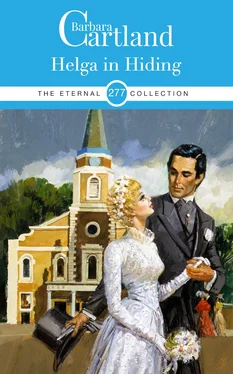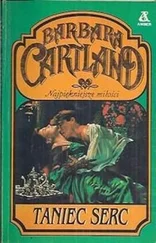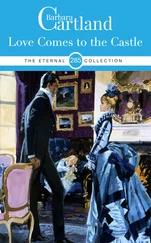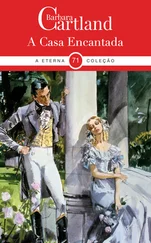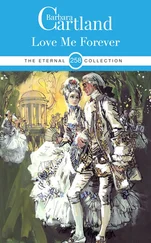She, of course, did not use her real name, but instead called herself ‘Millicent Melrose’ and hoped that her relatives would never find out what she was doing.
But whether they knew it or not she had no idea since she had no communication with them.
From the moment she became a Gaiety Girl life was far easier than it had been before.
Not only was she earning money for herself but, as Christofer played his part at home as skilfully as she played hers on the stage, his wife became more generous and he had more money to spend.
He set Milly up in a very comfortable flat in a quiet square not very far from The Gaiety Theatre and spent every moment he possibly could with her.
This usually meant that he was in London mostly during the week and returned home at weekends to entertain on his estate with shooting and hunting parties in the winter and in the summer there was tennis, archery and boating on the lake.
Milly tried not to think of what he was doing when he was not with her.
She was often lonely, but she told herself that it was the price she had to pay for being so blissfully happy when they were together.
Of course she was approached by other men. She was too beautiful for there not to be a constant flow of flowers and invitations to supper which made Christofer even more jealous.
But it meant nothing to her except that her admirers filled in the hours when he was not with her.
There was one man in particular who was very persistent and had pursued her now for nearly six years.
Sir Emanuel Stiener was exceedingly rich and so most of the Gaiety Girls were only too eager to accept his invitations and his presents, which were always very generous.
They fell over each other to ingratiate themselves with a millionaire who, because of his astuteness in business, was known to be a friend of the Prince of Wales.
It was perhaps Milly’s indifference that made him all the more determined that sooner or later she would be his.
It was Sir Emanuel Stiener who Milly was thinking about now as her eyes fell on a large basket of expensive orchids.
She was well aware that he was waiting impatiently but cleverly for her to get over the shock of Christofer’s death before he approached her, as he had before, with suggestions of what a difference he could make in her life.
“I will cover you with diamonds, wrap you in sables and cosset you against everything that might distress or hurt you,” he had promised.
She laughed at him and then replied,
“You know I have everything I want, not diamonds nor sables, but Christofer!”
Sir Emanuel had made no reply, but looked at her with his shrewd eyes and she thought now that perhaps he had known clairvoyantly that the sands were running out and the days of her happiness were numbered.
When she had read in the newspapers that Lord Forsythe had suffered a stroke while a guest at Marlborough House, she had been frantic with anxiety.
It was impossible for her personally to make enquiries at Forsythe House in Park Lane as to how he was, but she persuaded a half dozen of her admirers to do so on her behalf.
All they were told was that he was very gravely ill, but there was still some hope for his recovery.
Of course there was no question of Milly being allowed to see him and she could only wait and know as the days passed that it was inevitable he would die.
Actually it was her work on the stage that helped her get over the shock better than if she had been a lady of leisure with nothing to do but sit at home and weep.
The show must go on was the old troupers’ cry and Milly played her part brilliantly.
She had by now become an institution in the shows produced by George Edwardes at The Gaiety .
She had been promoted to having small parts in the main cast and, because her voice was soft and cultured and her diction clear, she eventually always had one sketch in which she was the principal.
She was well aware that this would not last for ever and, when she thought of the future, there seemed only one end to it and that was with Sir Emanuel.
At first she had felt that if another man even touched her hand she would scream with the horror of it, but Sir Emanuel was far too clever to put pressure on her or to impose himself physically upon her.
Instead he sent her flowers, notes of sympathy which were very eloquent, and expensive but practical presents like a case of champagne or a pot of pâté de foie gras or even caviar.
She wondered if she should send them back to him and then knew that it was something that she dared not do.
‘I hate him !’ she told herself a million times.
But she knew that her hatred was because he was alive while poor Christofer was dead.
“Dead!”
The word seemed almost to echo round her dressing room and she then put out her hand, aware that it was shaking a little for the bottle of brandy that was concealed behind a large photograph of herself at the end of the dressing table.
She poured out two tablespoonfuls into a glass and stared at it as she put down the bottle, knowing that Christofer would have been angry with her for giving in to what was inevitably the actor’s panacea of Dutch courage.
“I cannot manage without it, darling,” she had said to him pathetically.
Her brain was telling her that she had said just the same thing every night for the last two weeks and the brandy bottle had been replaced more times than she cared to count.
“I cannot go on like this!” she said aloud.
Even as she spoke, she lifted the glass to her lips and felt the fiery liquid slipping down her throat, sweeping away a little of her overwhelming fatigue.
She drank again and as she did so there was a knock on the door.
“Who is it?” she asked, slipping the glass behind another photograph of herself wearing a spectacular gown.
“There be a lady to see you, Miss Melrose.”
It was Joe the doorkeeper who spoke and she was just about to say that she had no wish to receive visitors when the door opened and somebody came into the dressing room.
Milly looked at her without interest.
It was a young woman who she supposed must be a fan and she could not understand how Joe had been so absurd as to let one of the autograph hunters, who were always outside the stage door, come up to her dressing room.
Then the girl in the doorway piped up,
“You are as beautiful as I thought you would be, Aunt Millicent! And I am so excited to meet you in real life.”
As the girl spoke, she came nearer to Milly, who stared at her in sheer astonishment.
“Who are you?” she asked.
“I am your niece, Helga Wensley, and you must please forgive me for coming to you so unexpectedly, but Mama told me what I was to do before – she died.”
There was a little tremor in the girl’s voice and Milly saw the tears come into her eyes, very beautiful eyes that seemed to fill her small pointed face.
“Are you telling me,” Milly asked, “that you are my sister Beryl’s daughter and that she is dead?”
The girl nodded as if for a moment it was impossible for her to speak.
Then she said,
“Mama died four days ago. She was buried ‒ yesterday. I have come here to ask you to help me – as she was sure that you would.”
Milly put her hand up to her forehead.
“I can hardly believe what you are telling me,” she said, “or that Beryl could be – dead.”
“She has been ill with consumption ‒ for the last two years,” Helga replied, “and, as she grew weaker – and weaker there was nothing the doctors could do to – help her.”
Now the tears were running down the girl’s face and, as if Milly realised that it was up to her to take control of the situation, she suggested,
Читать дальше
